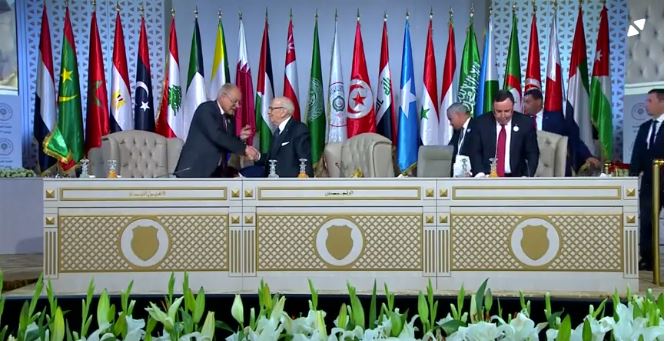
30th Arab League Summit in Tunis puts Golan and Palestine at centre stage
On 31 March, leaders from the Arab countries members of the Arab League met during the Arab League Summit in Tunis. U.N. Secretary-General Antonio Guterres attended the meeting, along with EU foreign policy chief Federica Mogherini and African Union Commission chair Moussa Faki. This year’s summit comes against a backdrop of ongoing wars in Syria and Yemen, instability in Libya, the widespread government protests in Algeria and Sudan and a boycott of Qatar staging a major diplomatic dispute in the Gulf. Khemaies Jhinaoui, Tunisia’s FM, who delivered the summit’s final statement, called the continuing conflicts in the Arab world “unacceptable”. Tunisia’s President Essebsi decried also “regional and international interventions” in Arab affairs. However, at the center stage of discussions were the US’ recent move over the Golan Heights and the Palestinian issue. The Arab League rejected the US’ recognition of Israeli sovereignty over the Golan Heights and renewed a call for the establishment of a Palestinian state, stressing that peace and security in the region depended on a solution to the Israeli-Palestinian conflict. Jhinaoui said Arab leaders were committed to resolving the conflict based on the Arab Peace initiative of 2002, in particular, Egypt’s El-Sisi and King Salman of Saudi Arabia who showed support for a Palestinian state while King Abdullah of Jordan reiterated his protection for the Al-Aqsa Mosque compound. But despite denouncing the US’ move, there was no announcement of further action by the Arab leaders. U.N. Secretary-General Antonio Guterres reiterated international support for an Israeli and a Palestinian State “living side by side in peace” stressing the two-state solution as the only viable one, which was seconded by HR/VP Mogherini. Also, Mogherini insisted that cooperation between the EU and the Arab League would only lead to a more peaceful regional dynamic. This summit showed for the first time King Salman and Qatar’s Emir Sheikh Tamim bin Hamad Al Thani sitting at the same table at the opening session since Saudi Arabia led the boycott of Qatar nearly two years ago. But Qatar’s emir left the summit after opening statements, giving no reason for his early departure.
- The Euromed news are edited by the team of the Euro-Mediterranean Policies Department of the European Institute of the Mediterranean -


